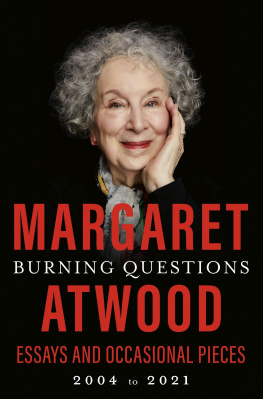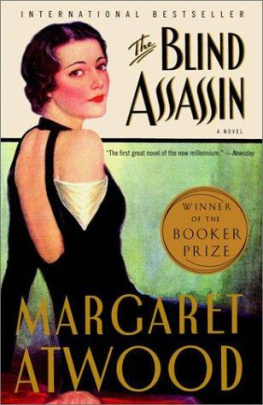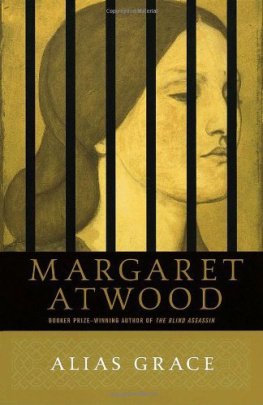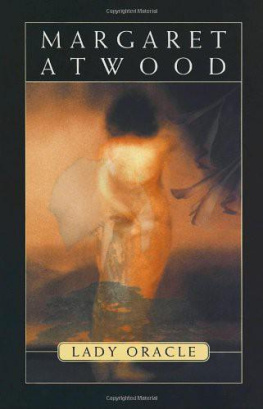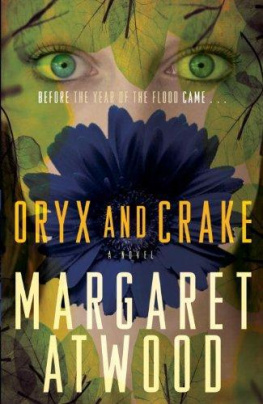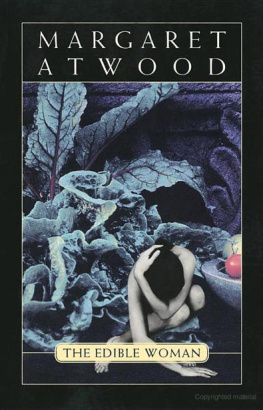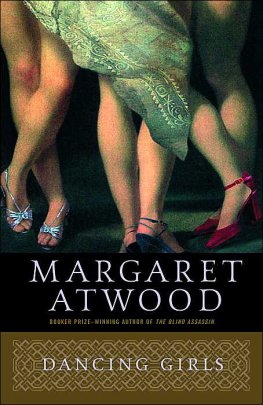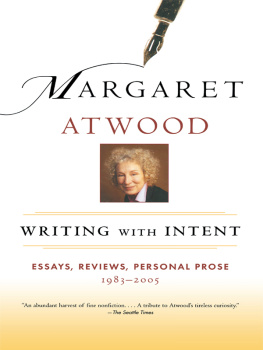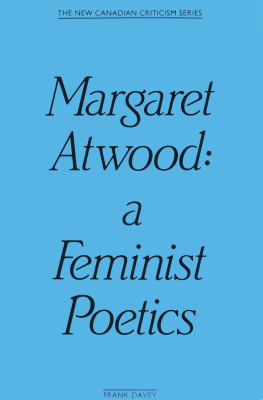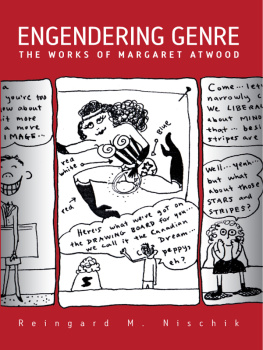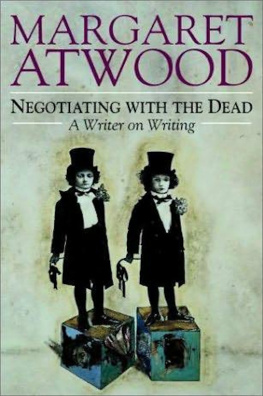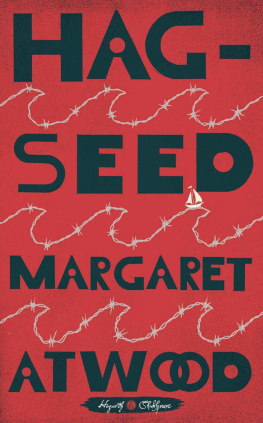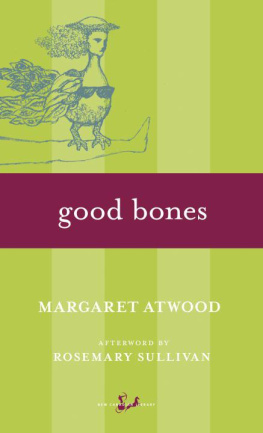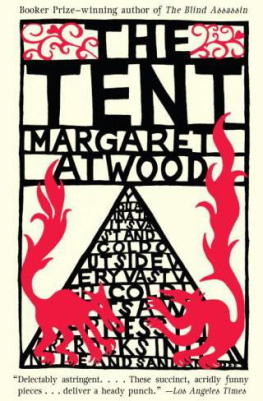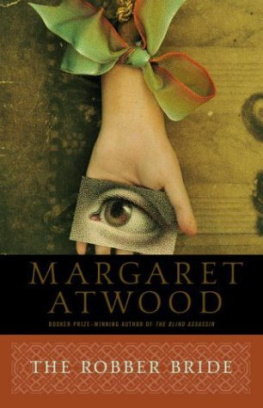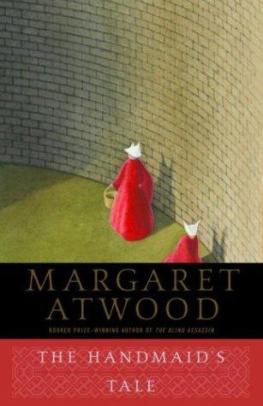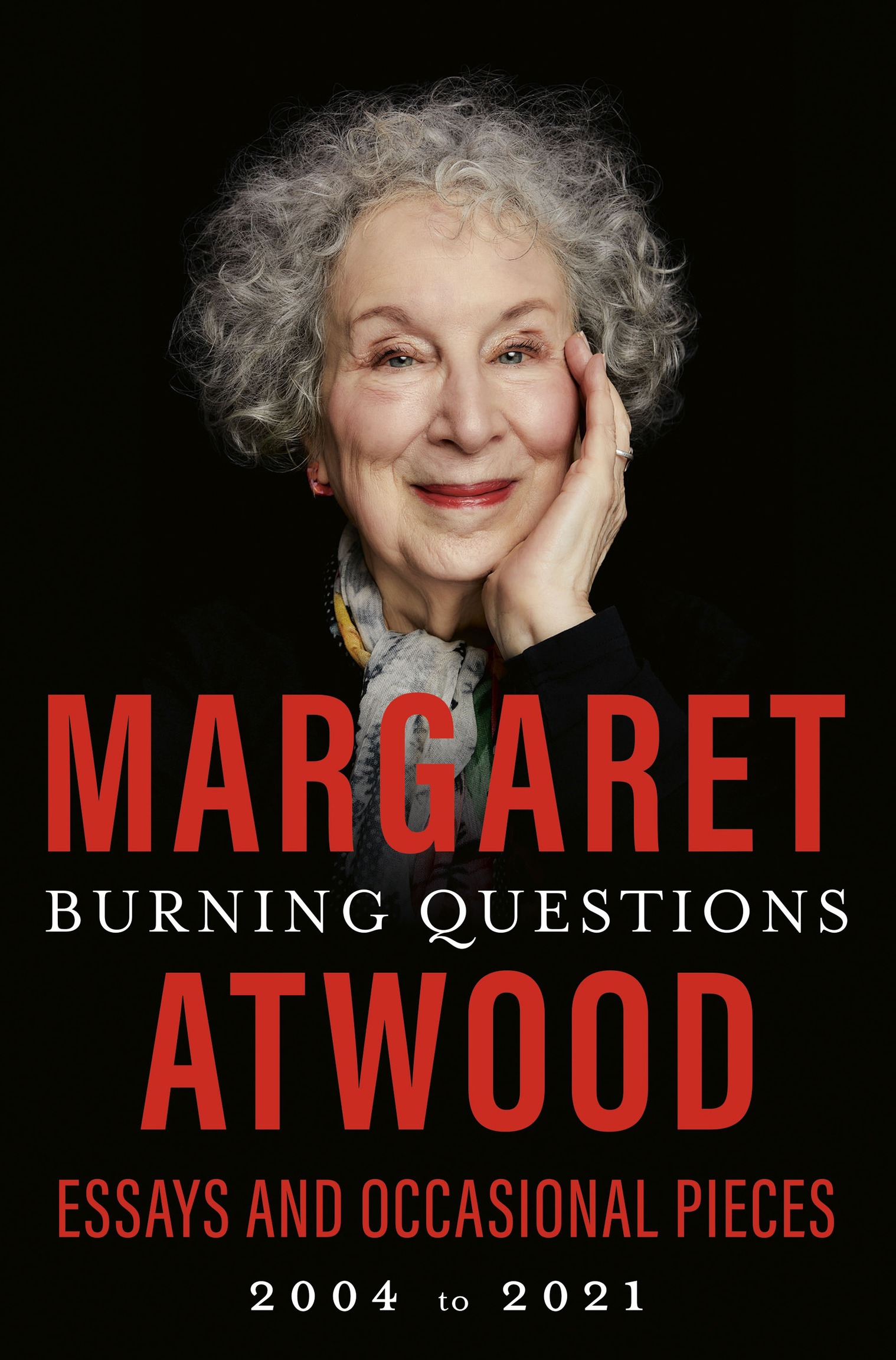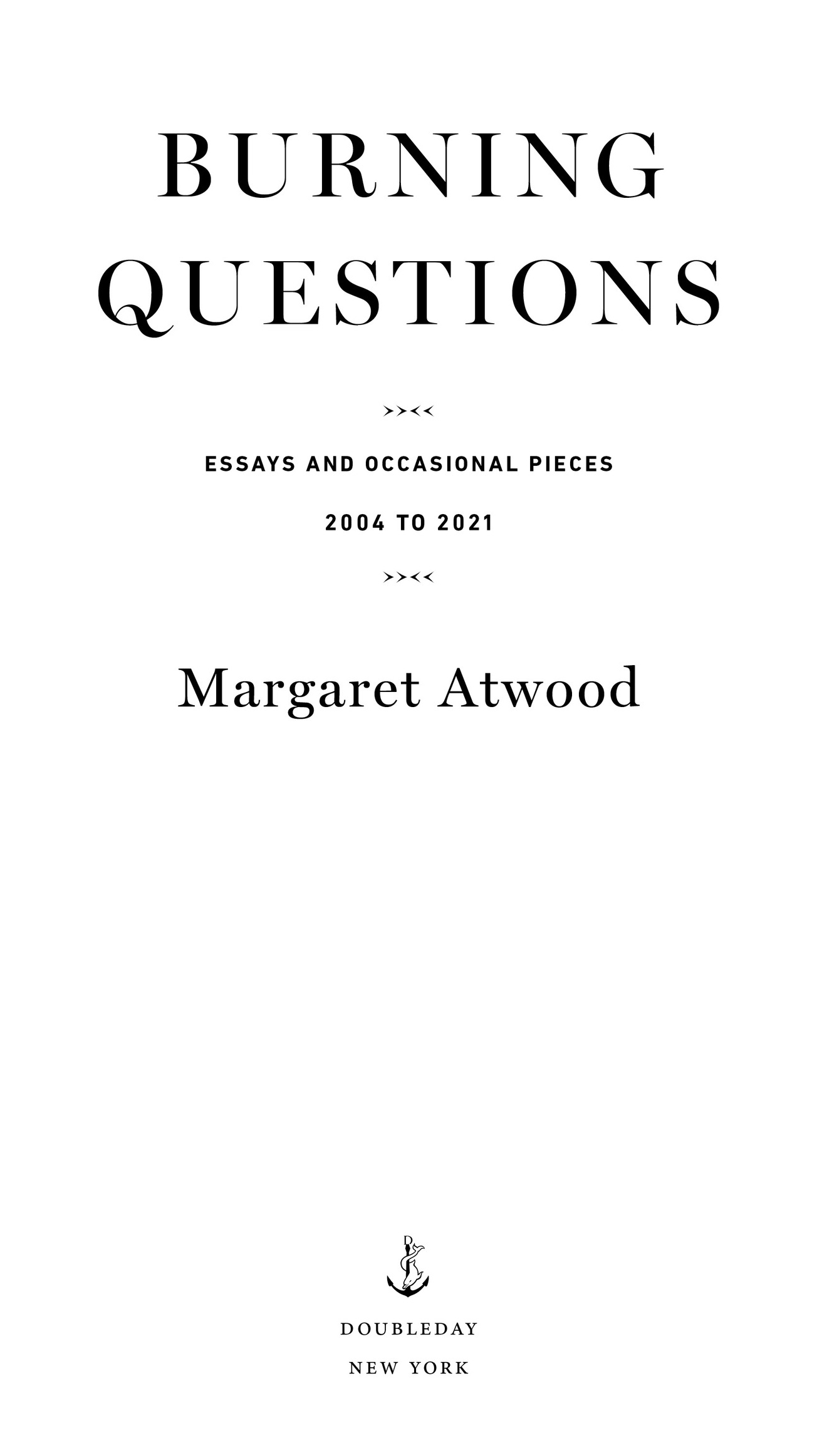also by margaret atwood
NON-FICTION
Survival: A Thematic Guide to Canadian Literature
Days of the Rebels: 18151840
Second Words: Selected Critical Prose
Strange Things: The Malevolent North in Canadian Literature
Negotiating with the Dead: A Writer on Writing (republished as On Writers and Writing )
Moving Targets: Writing with Intent, 19822004
Curious Pursuits: Occasional Writing
Writing with Intent: Essays, Reviews, Personal Prose, 19832005
Payback: Debt and the Shadow Side of Wealth
In Other Worlds: SF and the Human Imagination
NOVELS
The Edible Woman
Surfacing
Lady Oracle
Life Before Man
Bodily Harm
The Handmaids Tale
Cats Eye
The Robber Bride
Alias Grace
The Blind Assassin
Oryx and Crake
The Penelopiad
The Year of the Flood
MaddAddam
The Heart Goes Last
Hag-Seed
The Testaments
SHORTER FICTION
Dancing Girls
Murder in the Dark
Bluebeards Egg
Wilderness Tips
Good Bones and Simple Murders
The Tent
Moral Disorder
Stone Mattress
POETRY
Double Persephone
The Circle Game
The Animals in That Country
The Journals of Susanna Moodie
Procedures for Underground
Power Politics
You Are Happy
Selected Poems: 19651975
Two-Headed Poems
True Stories
Interlunar
Selected Poems II: Poems Selected and New, 19761986
Morning in the Burned House
Eating Fire: Selected Poetry, 19651995
The Door
Dearly
GRAPHIC NOVELS
Angel Catbird
The Handmaids Tale
War Bears
FOR CHILDREN
Up in the Tree
Annas Pet (with Joyce Barkhouse)
For the Birds
Princess Prunella and the Purple Peanut
Rude Ramsay and the Roaring Radishes
Bashful Bob and Doleful Dorinda
Wandering Wenda
COPYRIGHT 2022 BY O.W. TOAD, LTD.
All rights reserved. Published in the United States by Doubleday, a division of Penguin Random House LLC, New York.
www.doubleday.com
doubleday and the portrayal of an anchor with a dolphin are registered trademarks of Penguin Random House LLC.
Owing to limitations of space, all acknowledgements to reprint previously published material appear on .
Cover photograph Luis Mora
Cover design by Michael J. Windsor
Library of Congress Cataloging-in-Publication Data
Names: Atwood, Margaret, [date] author.
Title: Burning questions: essays and occasional pieces, 2004 to 2021 / Margaret Atwood.
Description: First edition. | New York: Doubleday, [2022]
Identifiers: LCCN 2021021363 (print) | LCCN 2021021364 (ebook) | ISBN 9780385547482 (hardcover) | ISBN 9780385547505 (ebook)
Subjects: LCGFT : Essays.
Classification: LCC PR 9199.3. A 8 B 87 2022 (print) | LCC PR 9199.3. A 8 (ebook) | DDC 814/.54dc23
LC record available at https://lccn.loc.gov/2021021363
LC ebook record available at https://lccn.loc.gov/2021021364
Ebook ISBN9780385547505
ep_prh_6.0_139403815_c0_r0
To Graeme
And for my family
Introduction
Burning Questions is my third collection of essays and other occasional pieces. The first was Second Words, which began in 1960, when I started publishing book reviews, and ended in 1982. The second was Moving Targets, which gathered materials from 1983 to mid-2004. Burning Questions runs from mid-2004 to mid-2021. So, twenty years, give or take, for each volume.
Each of these time periods has been tumultuous in its own way. Occasional pieces are written for specific occasions and are thus tightly connected to their own time and placeor at least mine are. They are also linked to my age at the time of writing, and to my outward circumstances. (Did I have a job? Was I a student? Did I need the money? Was I already a well-known writer, indulging my interests? Was I doing a freebie in response to a cry for help?)
In 1960, I was twenty, single, unpublished in book form, and a female undergraduate of limited wardrobe. In 2021, I was eighty-one, a fairly well-known writer, a grandmother, and a widow, also of limited wardrobe, having learned through failed experiments that there are some things better left unworn by me.
Naturally I have changedmy hairs a different colourbut so has the world. The past sixty-odd years have been a roller coaster, with many shocks and upheavals, many uproars and reversals. The year 1960 was only a decade and a half after the end of the Second World War. To our generation, that war felt both very closewed lived through it, our families contained veterans and casualties, some of our high-school teachers had been in itand very far away. Between 1950 and 1960 had come both McCarthyism, giving us a peek at the fragility of democracy, and Elvis, upending song and dance. The clothes too had changed radically: the 1940s were sombre, durable, military, boxy; the 1950s, frothy, strapless, bouffant, pastel, beflowered. Femininity was lauded. The cars had gone from the dark, enclosed sedans of the war years to chrome-trimmed convertibles in flamboyant colours. Transistor radios were among us. Drive-in theatres popped up. Plastics arrived.
Then, in 1960, there was another change. Among the earnest young, folk songs replaced formal dances. In the tiny artistic circles that then existed in Toronto coffee housesinclined as they were to French existentialism rather than Beatniksblack turtlenecks and equally black eyeliner were in vogue.
Still, the early 1960s were the 1950s, in essence. The Cold War was on. Kennedy had not yet been assassinated. There was no birth control pill generally available. There were no miniskirts, though there had just been short shorts. There were no hippies. There was no second-wave womens movement. It was in this period that I wrote my first book reviews, my first collection of poems, my first novelstill in a drawer, happilyand my first published novel, The Edible Woman. By the time it came outin 1969the world it describes was already gone.
The later 1960s brought uproar. The big civil rights marches in the United States, the antiVietnam War protests, the hundreds of thousands of American draft dodgers pouring into Canada. I myself was constantly in transit: for some of these years I was a graduate student in Cambridge, Massachusetts; for others I held minor academic positions in such places as Montreal and Edmonton. I moved sixteen or seventeen times. This period saw the formation of a number of new publishing ventures in Canada, many of them connected with the countrys post-colonial struggle to figure itself out. My involvement with one of them gave rise to much essay writing, both at the time and later.

